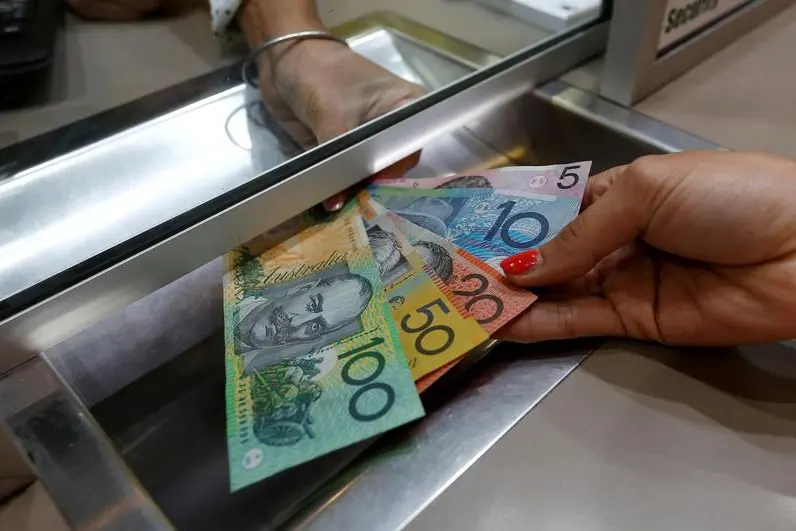PHOTO
The Australian and New Zealand dollars on Friday were headed for a second straight week of losses against a resurgent U.S. dollar, pressured in part by a sudden slide in the Chinese yuan.
Both held gains on a beleaguered yen, while the Aussie hit a four-month high against its kiwi cousin as the interest rate outlooks in Australia and New Zealand diverged.
The Aussie fell 0.6% to $0.6527, tracking a sizeable drop in the Chinese yuan, which was pressured by the expectation of imminent policy easing. It slipped 0.3% overnight, failing to sustain a rally from an unexpectedly strong local jobs report as the U.S. dollar gained broadly on low jobless claims.
In a week packed with central bank meetings, the Australian dollar was weighed down by the Reserve Bank of Australia's (RBA) decision to drop its tightening bias. But it hit a fresh nine-year high on the yen and an eight-month top on the Swiss franc as Switzerland unexpectedly cut interest rates.
The Aussie is set for a weekly drop of 0.4%, thanks to the yuan-triggered fall on Friday. The currency is often sold as a liquid proxy for the Chinese currency, reflecting Beijing's position as the largest buyer of Australian resources.
The kiwi fell 0.5% to $0.6013, a four-month low, and is set for a weekly loss of 1.2%. Weighing on the currency is unexpected weakness in the New Zealand economy, which reinforced market expectations of about three rate cuts this year.
On Friday, the RBA published its semi-annual Financial Stability Review, which showed Australian borrowers could continue to service their debts even with higher interest rates, but 2024 would remain a challenging year for household budgets.
"We attribute only a low probability to a further hike, and continue to see the RBA on hold until late 2024, pencilling in the first rate cut in November 2024," said Tapas Strickland, head of market economics at National Australia Bank.
Futures imply 38 basis points of cuts from the RBA this year. That contrasted with an expected easing of 75 basis points in New Zealand, which sent the Aussie to a four-month high of NZ$1.0876 overnight before running into profit taking. (Reporting by Stella Qiu; Editing by Jamie Freed)





















